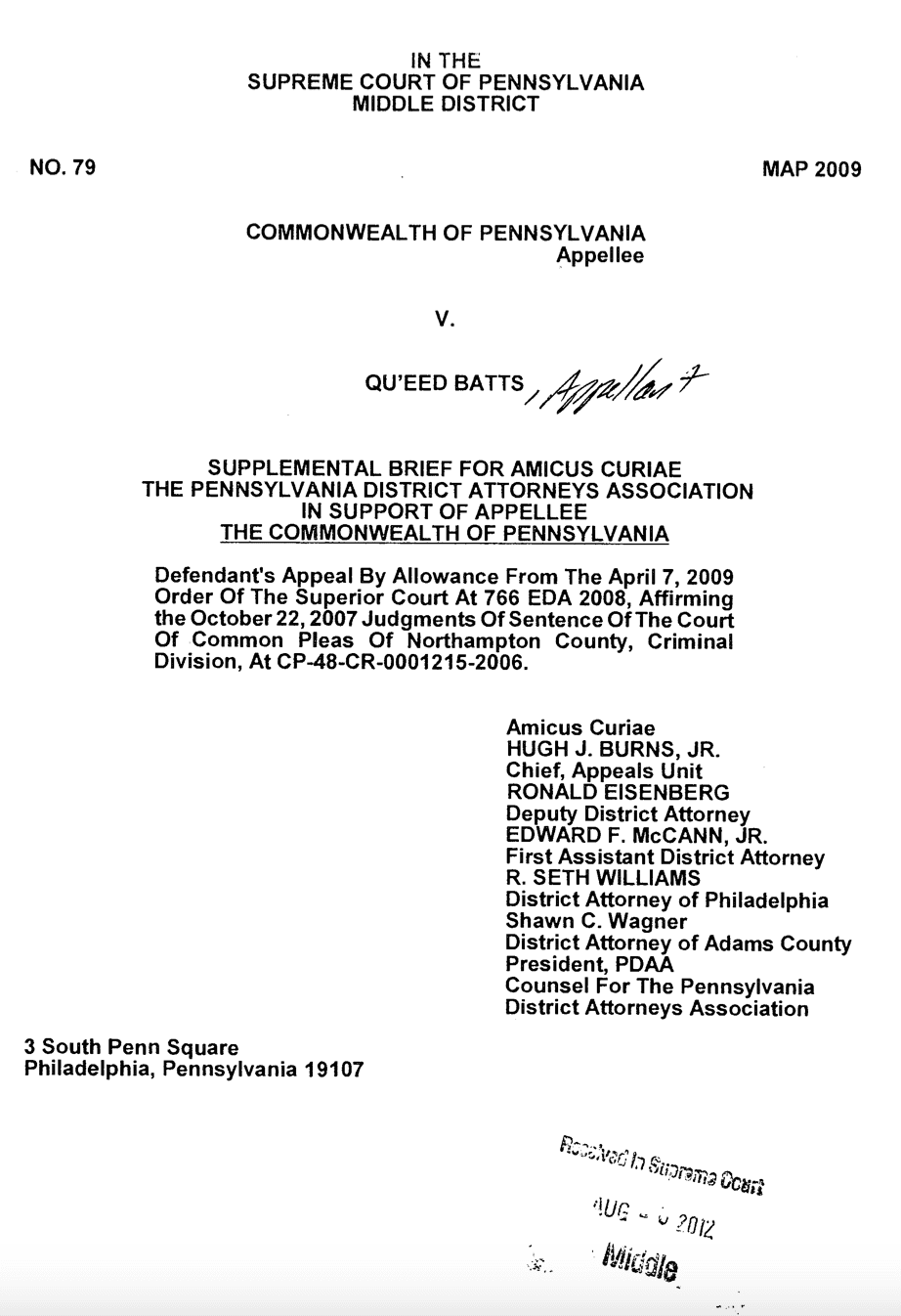
Summary of Argument
Miller v. Alabama alters virtually none of Pennsylvania's statutory sentencing provisions. Where it applies, it bars only the mandatory imposition of life without the possibility of parole. It therefore affects only a small and severable portion of the parole board jurisdiction statute. On appeal, it requires only a new sentencing proceeding in which the trial court will consider the defendant's "youth and attendant characteristics" in deciding between life without parole and life with the possibility of parole.
Contrary to defendant's unexplained argument, Miller does not purport to negate his conviction for first degree murder, transform that offense into third degree murder, or invalidate Pennsylvania law requiring a maximum life term for first degree murder. It requires only an individualized sentencing proceeding in which parole eligibility is an option. Defendant's argument to extend Miller to immunize him from a maximum life term is baseless. That case does not warrant any new or different construction of the state constitution regarding criminal punishments, which this Court has always held to be coextensive with the subsequently enacted federal provision. Miller does not render unconstitutional a sentence of life without parole under the federal constitution, and this Court held in Commonwealth v. Sourbeer that life without parole for a 14 year old first degree murderer does not shock the conscience and is not cruel. Miller affords no reason to look to the state constitution in an effort to expand upon its limited holding under the federal constitution.
Defendant is entitled only to resentencing consistent with Miller.
Open Amicus Brief as PDF